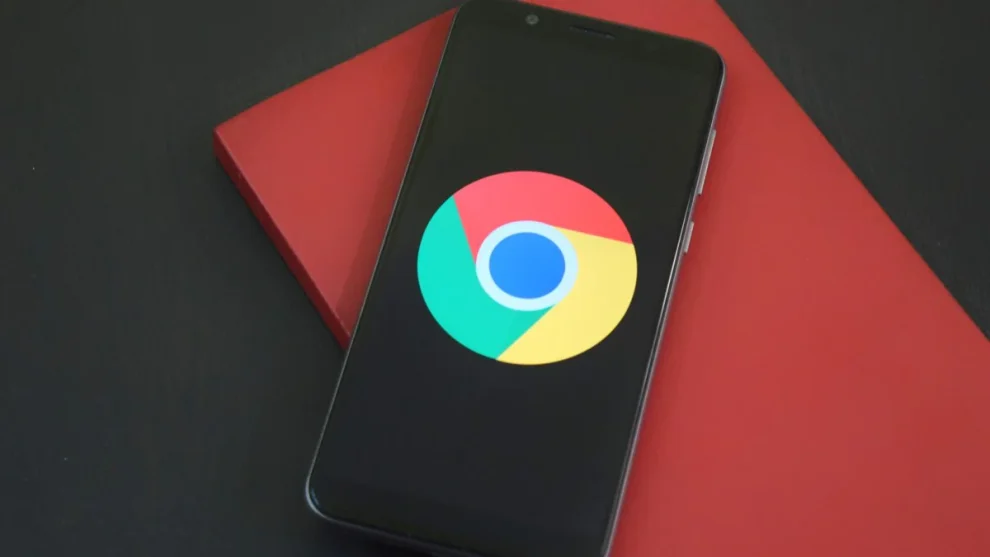The winds of change are sweeping through the Android ecosystem. After a ten-year run, Google has officially announced the end of support for Android 5.0, also known as Lollipop. This move signals the closing chapter for a significant era in Android’s history, one that introduced Material Design and ushered in a new visual language for the platform. But what does this mean for users still clinging to Lollipop devices? Let’s delve into the implications of this decision and explore what the future holds for Android.
A Decade of Lollipop: A Look Back
Released in November 2014, Android Lollipop marked a major turning point for the mobile operating system. It introduced Material Design, a design language that emphasized bold colors, flat surfaces, and fluid animations. This visual overhaul brought a much-needed refresh to the previously skeuomorphic interface and laid the foundation for the modern look and feel of Android.
Beyond aesthetics, Lollipop brought several functional improvements. It introduced improved notifications with the ability to respond directly from the notification shade. App permissions were revamped, giving users more control over what data apps could access. Additionally, Lollipop saw the introduction of Project Volta, a set of battery optimization features that aimed to extend battery life on mobile devices.
Despite its contributions, Lollipop wasn’t without its shortcomings. The initial rollout was plagued by bugs and performance issues on some devices. Additionally, the fragmentation that has always been a challenge for Android continued to be a concern. By the time Lollipop reached its peak market share of around 38% in 2016, newer versions of Android were already gaining traction.
The Sunset of Lollipop: Why End Support Now?
With less than 1% of active Android devices currently running Lollipop, Google’s decision to end support comes as no surprise. Here are the key reasons behind this move:
-
Security Concerns: Older versions of Android are more vulnerable to security exploits. By ending support, Google can focus its resources on patching vulnerabilities in more widely used versions of the operating system.
-
Feature Development: Modern Android versions boast a plethora of features and capabilities not present in Lollipop. Continued support for an outdated version would divert resources away from developing and improving these functionalities.
-
Compatibility Issues: As app developers focus on newer APIs and features, older versions of Android may struggle to run newer apps or updates.
The Bottom Line: Ending support for Lollipop allows Google to prioritize security, focus on innovation, and ensure a consistent user experience across the vast Android ecosystem.
What Does This Mean for Lollipop Users?
If you’re still using a device running Android Lollipop, here’s what you need to know:
- No More Security Updates: Your device will no longer receive security patches, making it more susceptible to malware and other threats.
- Limited App Compatibility: New apps and updates for existing apps may not be compatible with Lollipop, limiting your access to the latest features and functionalities.
- Potential Performance Issues: With no further optimization updates, your device may experience performance issues and lag over time.
The Recommendation: Upgrading to a newer version of Android, ideally Android 8.0 (Oreo) or later, is highly recommended. This will ensure you receive the latest security updates, access the newest apps, and experience the best possible performance from your device.
However, we understand that upgrading may not be feasible for everyone due to factors like device limitations or budget constraints. If upgrading isn’t an option, here are some tips to mitigate the risks:
- Prioritize Security: Be cautious when downloading apps, only install from trusted sources like the Google Play Store.
- Keep Existing Apps Updated: Update your existing apps as long as updates are available for Lollipop.
- Be Mindful of Security Risks: Avoid clicking on suspicious links or opening unknown attachments.
The Future of Android: A Look Ahead
By ending support for Lollipop, Google sends a clear message: security and innovation remain paramount for the Android platform. Looking ahead, we can expect Google to continue focusing on:
-
Improved Security: Expect Google to prioritize developing robust security features and patching vulnerabilities in newer versions of Android.
-
Enhanced User Experience: Android will likely continue to evolve with new features and functionalities designed to improve user productivity and entertainment.
-
Focus on Developer Tools: Google will likely continue to invest in developer tools and resources to encourage app development for the Android platform.
The takeaway: While the end of support for Android Lollipop marks the conclusion of an era, it also paves the way for a more secure and innovative future for the Android ecosystem. As technology continues to evolve, so too will Android, ensuring it remains a dominant force in the mobile landscape.
















Add Comment